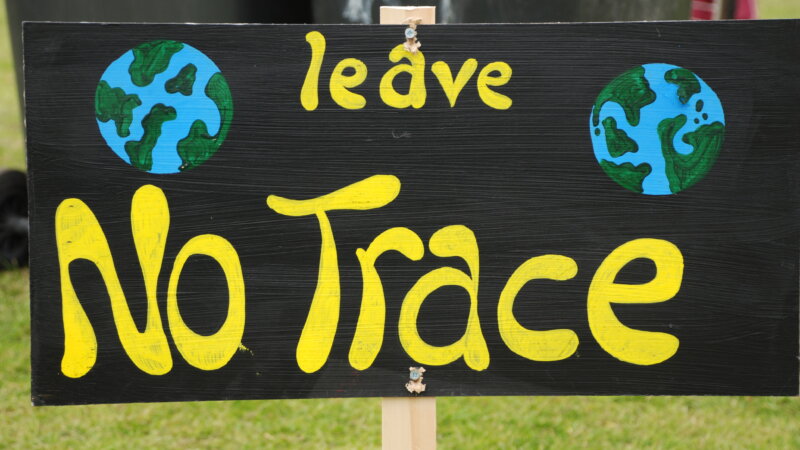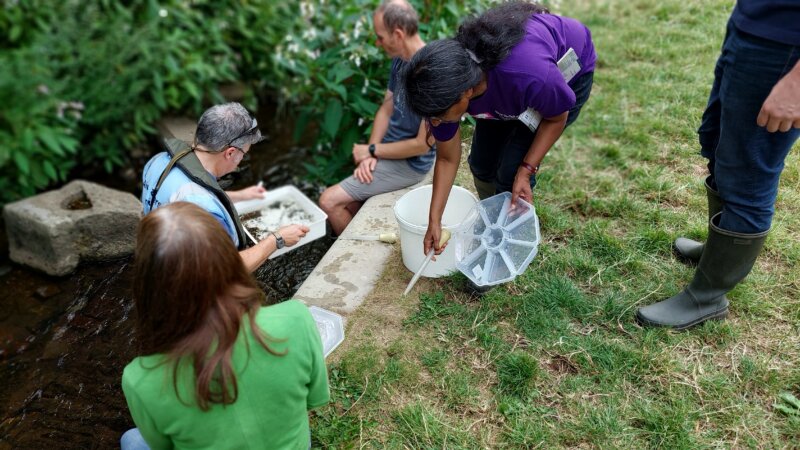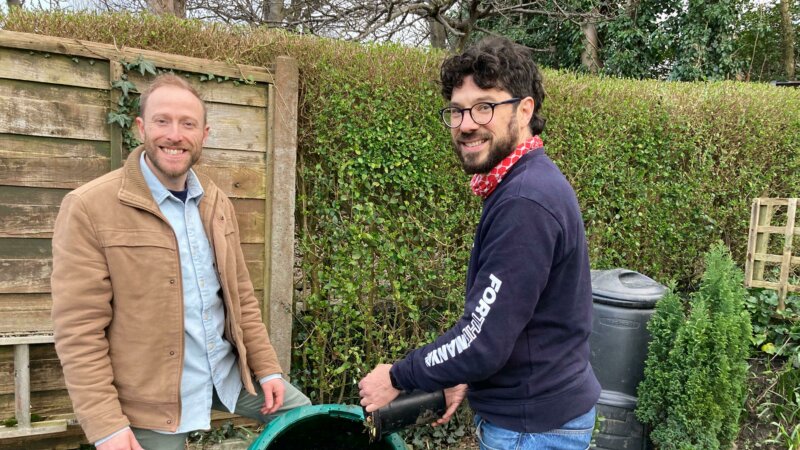The Climate Crisis & Me: Action in the face of inaction
Extinction Rebellion's Catherine Brentnall speaks to four Sheffield residents about their climate action, in the face of the latest damning report from the Intergovernmental Panel on Climate Change (IPCC).
The latest report from the Intergovernmental Panel on Climate Change (IPCC) on Impacts, Adaptation and Vulnerability found that climate change is now a grave threat to human wellbeing and the health of the planet.
On publishing the report in February, climatologist and IPCC co-chair Hans Otto Portner said pointedly that any further delay in concerted global action will “miss a brief and rapidly closing window to secure a liveable future.”
In light of this, Catherine Brentnall of Extinction Rebellion (XR) spoke to four XR Sheffield members to find out how they are continuing to take action in the face of increasingly alarming news on climate breakdown.
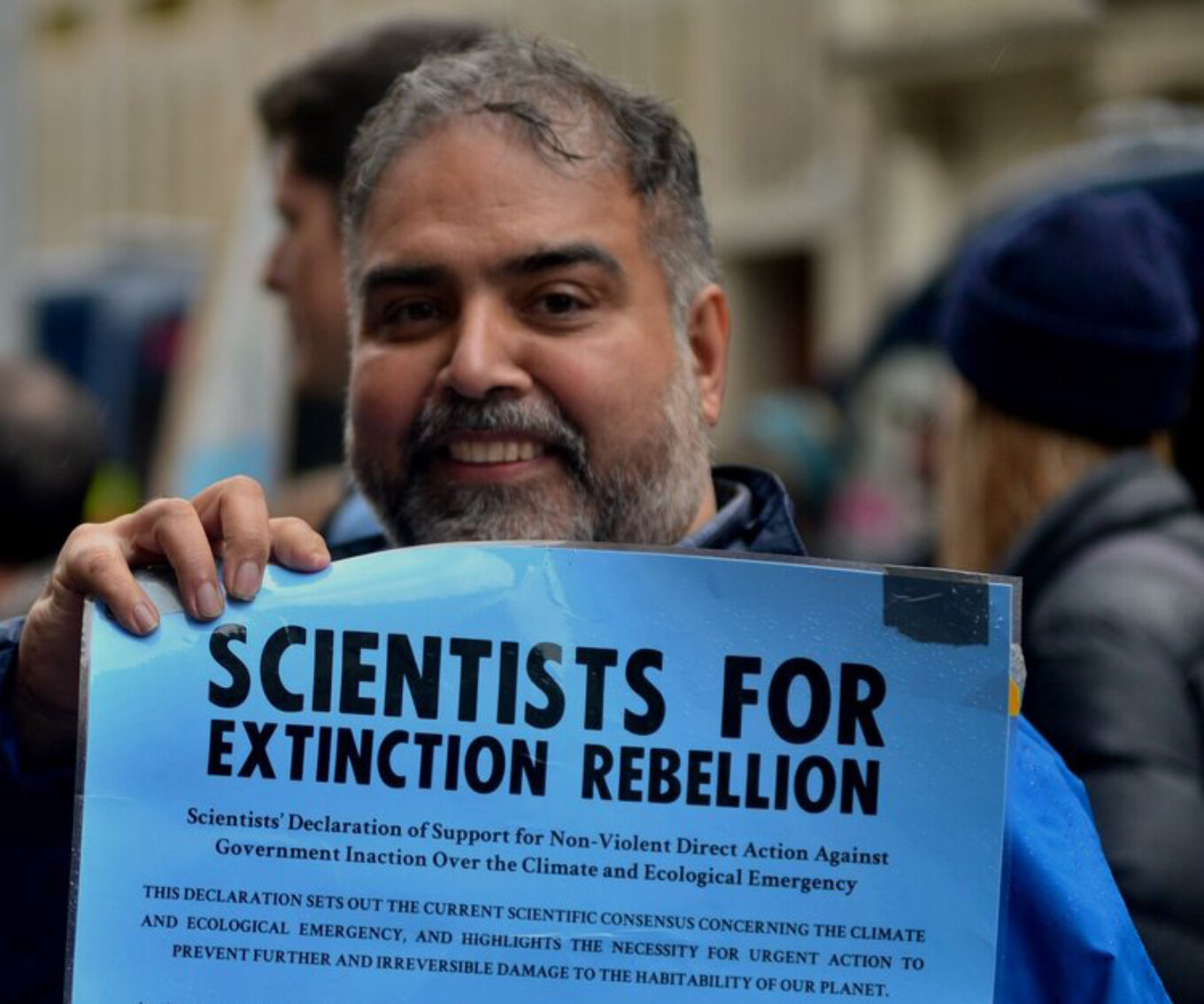
Dr John Grant of XR Scientists.
Louise Gardner, Scientists For Extinction Rebellion.John Grant, XR Scientists
I use my teaching skills to encourage others to take action.
Dr John Grant, 54, is a Senior Lecturer in Climate Change Resilience and Sustainability at Sheffield Hallam University. The climate crisis is a constant concern for him. “Rarely a day goes without a new report that an extreme weather event has occurred somewhere in the world. The media is often focussed elsewhere, on political events or more recently on the tragedy in Ukraine.
“But those of us who are focussed on this cannot see any light at the edge of the horizon; the findings of the latest report are very bleak. Fundamentally, it states that everyone is being affected by climate change (but not equally) and everything that is already bad - such as inequality and poverty - climate change makes it much worse."
Most notable for John is the report's findings about "the risk
of extreme weather events becoming more frequent as the earth heats."
"[The IPCC report] identifies four key areas where we need to make changes: how we produce and consume food, how we travel, energy production and how our buildings perform. Transforming these areas is essential as we cannot afford more carbon to be released and heat the planet further, increasing the risk of more devastating extreme weather.”
John, from Handsworth, has been teaching in climate change and resilience for 26 years. Before joining XR he was worn down by collective inaction. “I’ve felt that we’ve all been banging our heads against a brick wall. Educating these amazing students to make a difference and seeing no change happen was very depressing. It was only after joining Extinction Rebellion and XR Scientists that I got a bit of hope.”
John now uses his teaching skills and knowledge to educate others about the climate crisis and encourage them to take action. “My hope is that by running talks and raising the issue that enough people will see the urgency and then be willing to take action and press for changes. It’s what keeps me going.”
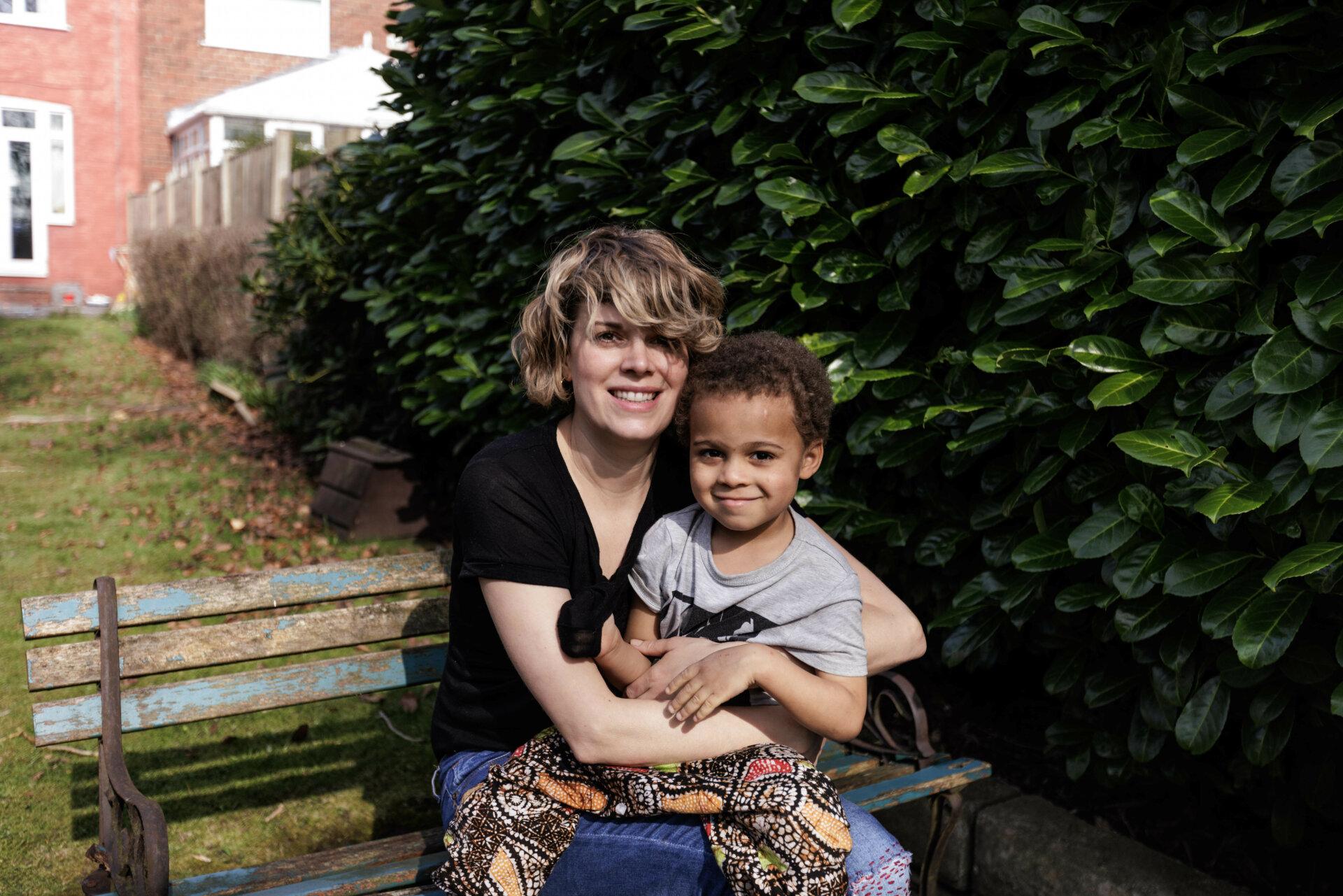
Hazel Bober of XR Young Families.
Kit RyallHazel Bober, XR Young Families
I re-focus conversations on the systemic change we need.
Hazel Bober moved to Sheffield from Singapore in 2021. She told me she found the latest IPCC report “overwhelming," in particular as a mum of two.
"I find it very difficult to balance my knowledge of the bleak future we are facing with the energy I need in my daily interactions with my two young children, aged four and six. When the latest [IPCC] report was released, I was torn between wanting to read up on it as much as possible and needing to be present and in the moment for my children.”
Hazel was part of a climate action group in Singapore, Climate Conversations, and joined Extinction Rebellion when she moved to Sheffield. “In Singapore, the climate crisis is very present. I was pregnant with my youngest child when the smog from Indonesian rainforests being burned down to create space for palm oil production reached record highs.
“In Singapore I facilitated guided conversations in people’s homes, for groups of friends, where we explored the climate crisis and what we can do about it, and here I have got involved in different aspects of XR – everything from going to and organising main Monday meetings to arranging to test a climate conversation in Sheffield.
Hazel says these conversations can be difficult, but that "in order for an idea to take root in
society, it needs to be part of our daily conversations."
"I often find people are interested in discussing their individual climate actions, or indeed their ‘environmental sins’, such as using a tumble dryer or driving. But I always try to re-focus the conversation on the systemic change we need, such as mass, cheap public transport and a just transition away from polluting industries and the fossil fuel economy.”
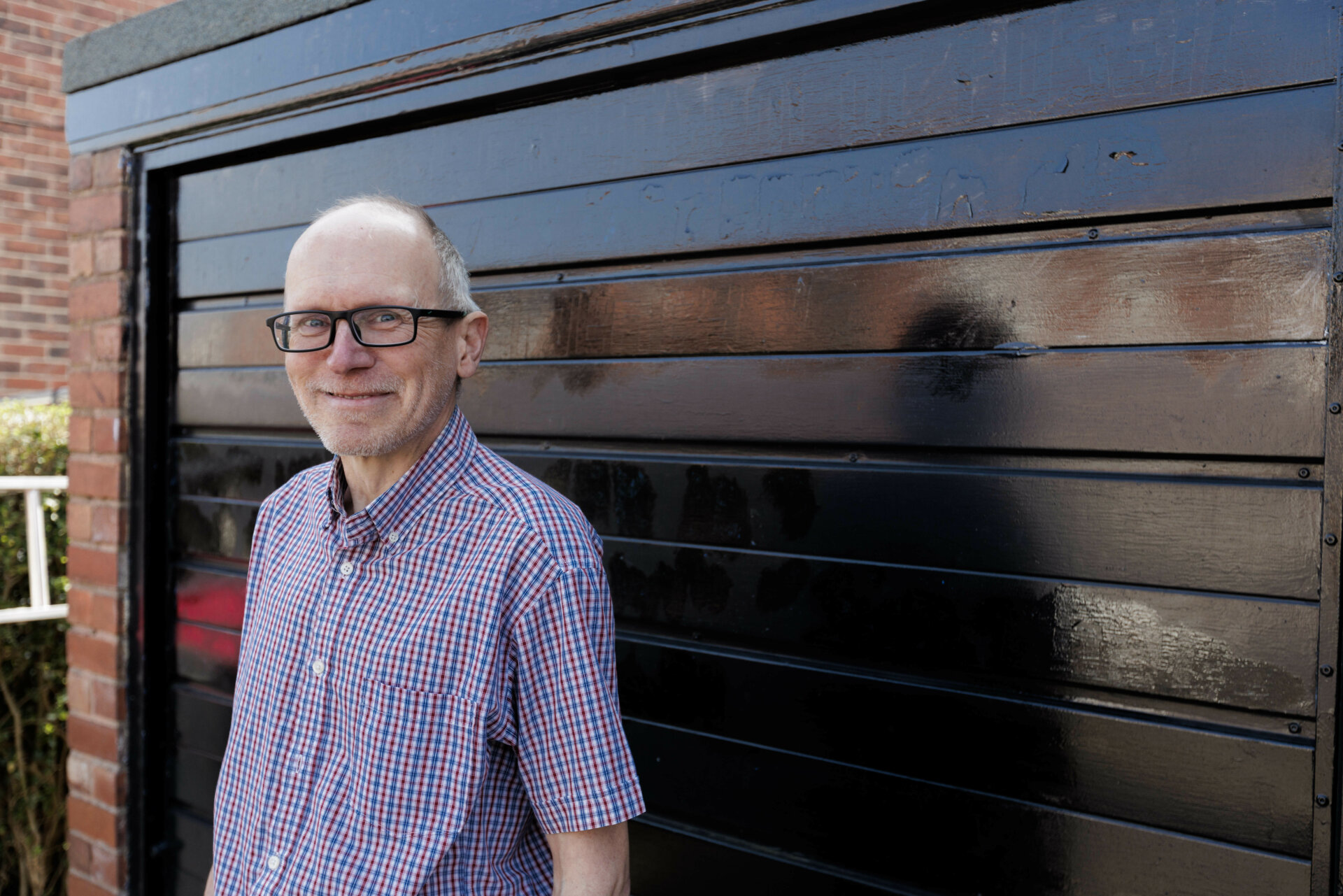
Ian North of XR Art Group.
Kit RyallIan North, XR Art Group
My house is my canvas.
Ian North and his wife Alison, both 54, from Rotherham, got involved in Extinction Rebellion Sheffield as a result of news coverage about climate breakdown in the run up to COP26.
Ian says increased media coverage made the couple realise "how bad the
situation was."
"People were being asked to make climate pledges such as turning down the thermostat, getting insulated, doing less driving, flying and eating meat. We’re not on Facebook so we made those changes visible by stencilling them onto our bedroom window, hoping they would be a talking point for passers by.”
As a result of the coverage of COP26, Ian realised
that individual changes would not be enough. “I saw that climate change
was not something distant and in the future, but that people were
suffering in other parts of the world now.
"We looked up different climate groups and felt XR – with its non-violent protests and the aim to demand that government, big business and the fossil fuel industry do what’s necessary to stop the harm – was the best choice for us.”
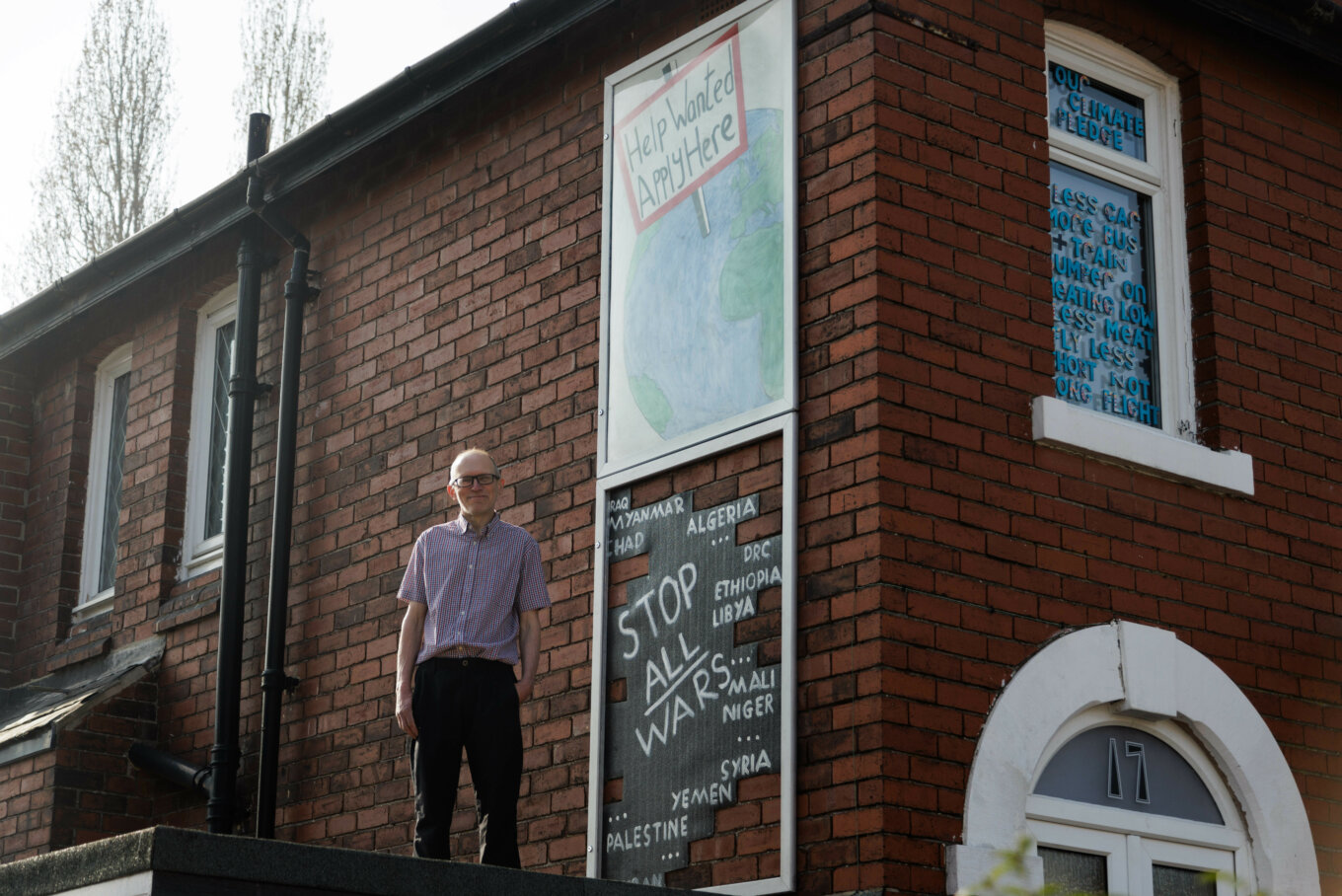
Ian North standing next to climate crisis messaging he has installed on his house.
Kit RyallIan joined the XR Sheffield Art Group and since then has
used his house as a canvas to communicate messages on the climate.
“It started with putting our individual climate pledge on our bedroom window. Then I used our garage door to make an appeal that ‘climate groups need you’. Now I’ve just put posters up on the side of the house. You can’t miss the message that Earth needs your help.”
“It’s very personal, to use our house to say something about this issue. I can go to a protest and hold a banner and that protest lasts a day, but my house is a larger canvas that exists over time. I hope people see it and it provokes thinking and they start talking about climate breakdown, and how they could get involved in putting on pressure for change.”
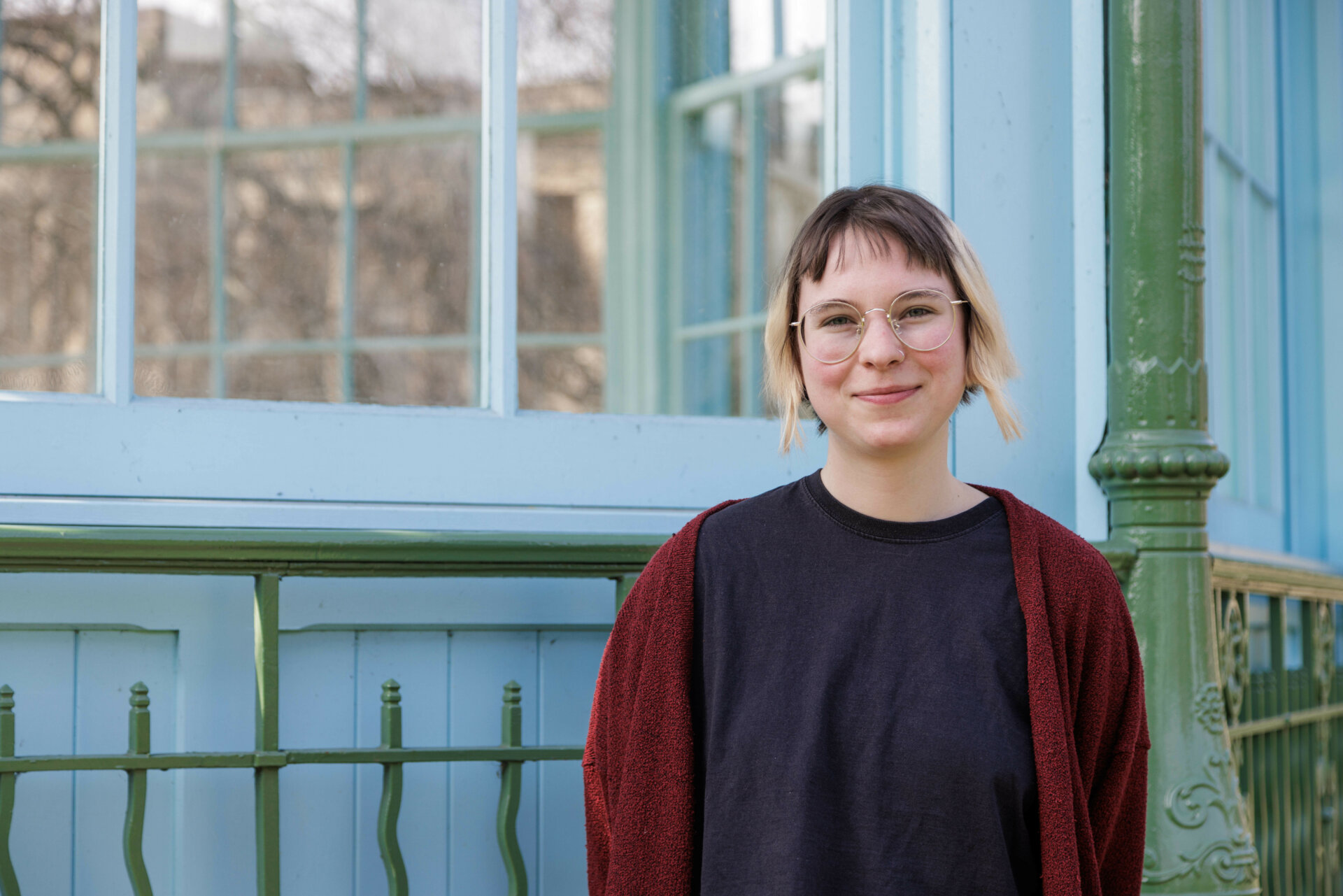
Marysia of XR Youth.
Marysia Maciejowska, XR Youth
I reject hopelessness.
Marysia Maciejowska, 22, from Crookes, is a student from the University of Sheffield. She got involved in climate action after attending a talk about climate justice and meeting members of Extinction Rebellion. “I was overwhelmed by feelings of anger and deep sadness about the future, but these people made me feel like there was still hope.”
Marysia took part in the October Rebellion of 2019. “I was on the streets and surrounded by people who have the same fears and hope. It was full of joy and the first time I realised that it could be possible to make governments and corporations listen.”
She has swapped reading about climate news for working towards taking positive action that empowers people. “I would read [reports] with fellow activists and talk about our feelings and worries towards it. However, I stopped doing this because each one of the reports was more worrying and depressing. Scientists’ message is clear: climate change is real and its impact is already disastrous for ecosystems, biodiversity and human communities. I realised that I do not want to listen to these words ever again; it is too much.”
Now Marysia focuses on communications which tells a different story about the future, particularly inspired by the work of activist and author Joanna Macy.
“According to her, there are three stories that are feeding our world. We have Business as Usual, which is the story of continuous growth. We are constantly fed with this in our society: that the more we have, the happier we are; that endless growth is possible; that there is nothing to worry about. I do not want to listen to this story.
"The second option is The Great Unravelling. Here,
we are being overwhelmed by the amount of suffering in the world. There
is no hope for the future. We feel powerless.
"The last story is called The Great Turning, which makes us act. I choose to listen to this story. I reject to embed myself in hopelessness.”
Marysia is part of the XR Regenerative Cultures group, which takes care of the wellbeing of activists. “I strongly believe that in order to make change we need to change our perspective on self-care and community care. I believe that our actions have an influence on the world and together we make our society more equal, sustainable and creative. Just join our conversation.”



